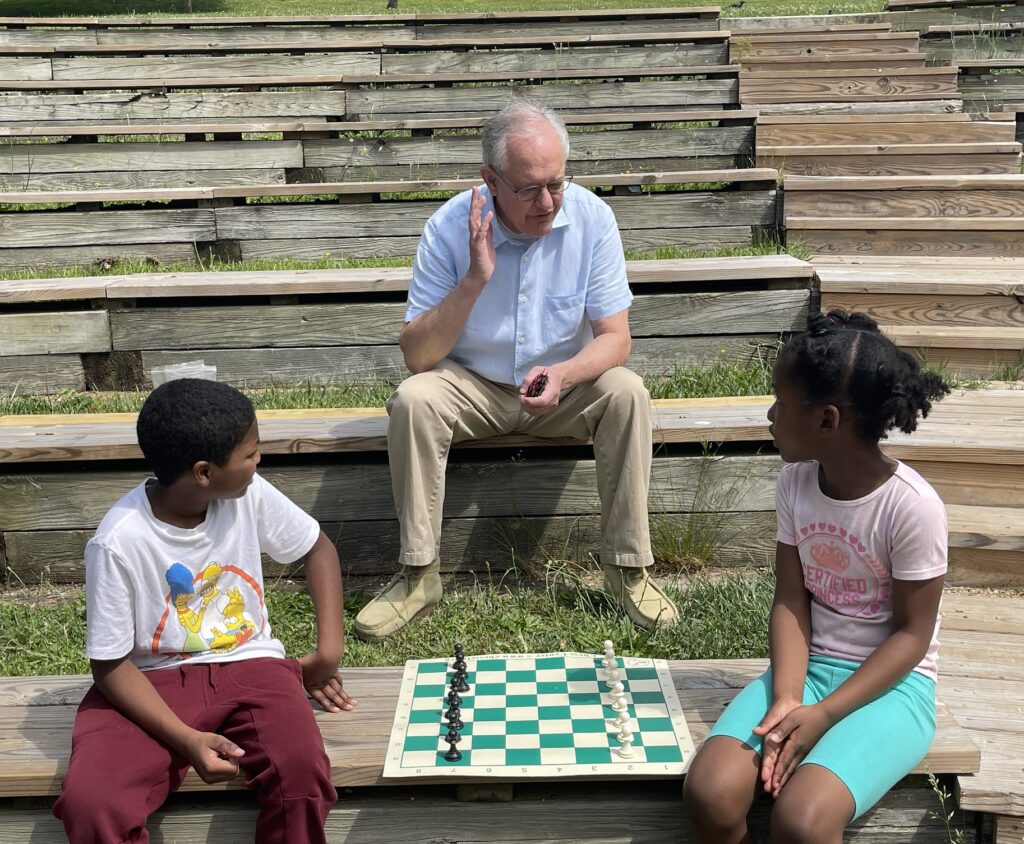Since forming the U.S. Chess Center over 30 years ago, David Mehler has been at the center of our efforts to teach the game to young people. In a feature published earlier today by Washington Jewish Week, he touches on several topics related to the Center, including the philosophy that has helped us reach tens of thousands of students in the greater D.C. area with our instruction.
From our beginning, we’ve always encouraged the idea of chess not as an exclusive vocation for some cadre of intellectual super-elites, but rather as a pastime that everyone can enjoy with their friends. As Mr. Mehler explains, anyone can learn to play and anyone can profit from learning. Children who may be used to thinking only about short-term consequences learn the value of strategizing and planning ahead toward a long term goal, and students in the habit of acting out in the classroom can find an outlet for their energies that is equal parts competitive and mentally demanding. Our preference for in-school chess classes over after-school clubs exists for the simple reason that those students least likely to sign up to learn the game are the ones likely to benefit the most from doing so.
Our perspective on teaching the game runs along those same egalitarian lines. Aside from a required rudimentary understanding of the rules, strategy and etiquette of chess, there’s not necessarily a correlation between playing strength and the ability to effectively impart the fundamentals to children. Beyond Mr. Mehler’s jest about how “I make terrible moves while I’m playing competitively, but I can teach kids not to follow my example,” there’s a great deal of truth to the idea that you don’t have to be a grandmaster to be a good teacher of the game; you just need patience and a basic knowledge of what makes chess so useful.

You can read the entire article on Mr. Mehler and the beginnings of the U.S. Chess Center here. And, if you agree that chess can be a valuable tool to sharpen the minds of children, please consider donating to support our charitable work.
